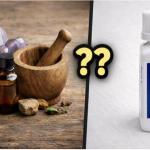If you tell a naturopath, chiropractor, or other statin-hater that you’re taking a statin, chances are you’ll get a withering look — the kind that says, “Enjoy the poison, fool.” Or a sad head shake that seems to say, “Been nice knowing you.”
LDL cholesterol
“Between 2002 and 2013 statin use in the US nearly doubled, cholesterol levels are falling, yet cardiovascular deaths appear to be on the rise.”
In 1987, Mevacor (lovastatin) became the first member of a ne
In what may be the most important development in the manageme
Vitamin D plays an important role in maintaining strong bones.




